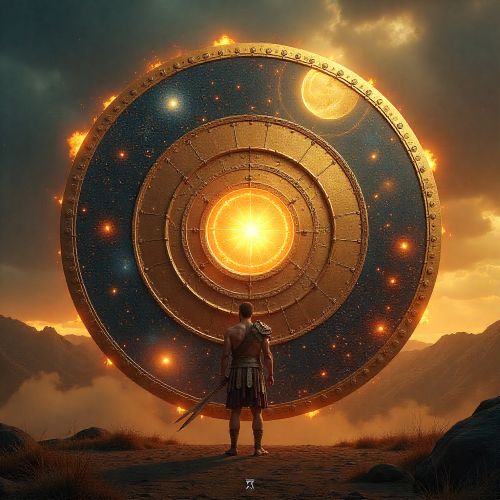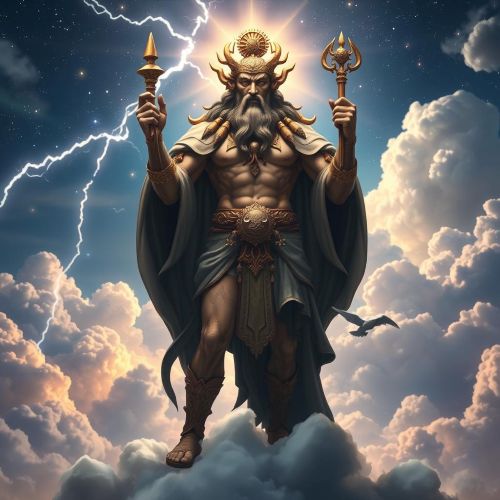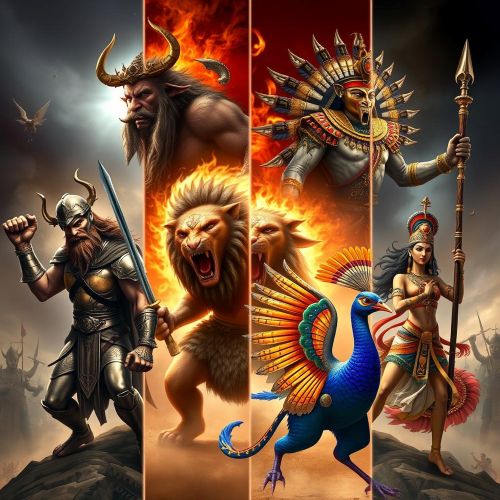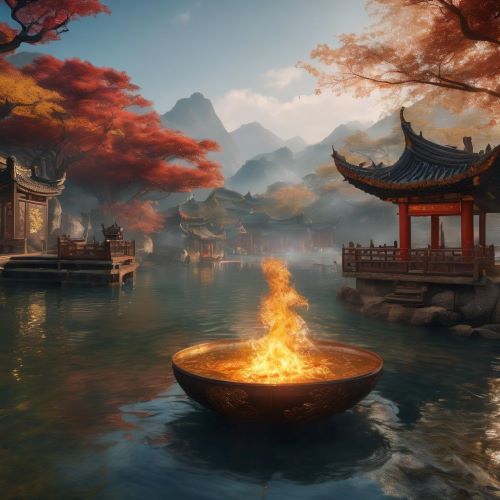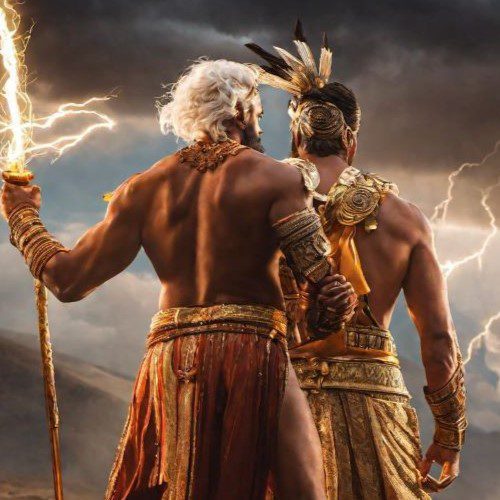God of Water: 10 Powerful Water Deities from Mythology Around the World
Across cultures, the god of water holds immense power and reverence. Water, symbolizing both life and destruction, has inspired myths, prayers, and rituals since ancient times. Civilizations flourished near rivers, seas, and lakes, leading people to personify these vital forces as divine beings. From calm ocean guardians to fierce storm bringers, these deities reflect humanity’s deep respect and fear of the element that sustains all life. Let’s dive into a list of some of the most fascinating gods and goddesses of water from around the world.
1. Poseidon – The Greek God of the Sea
In Greek mythology, Poseidon reigns as the powerful god of water, controlling seas, storms, and earthquakes. Wielding his iconic trident, Poseidon was both protector and destroyer—capable of granting safe voyages or unleashing raging tempests. Sailors prayed to him before setting out on their journeys, hoping to earn his favor. His underwater palace in the Aegean Sea symbolized the grandeur and mystery of the deep.
2. Varuna – The Vedic God of Water and Cosmic Order
In ancient Indian mythology, Varuna is revered as the god of water and the celestial ruler of oceans. Beyond governing rainfall and rivers, Varuna embodies ṛta—the cosmic law and moral order. Often depicted riding a sea creature called makara, Varuna represents wisdom, justice, and the balance of nature. His dual role as a guardian of truth and a water deity makes him one of the most respected figures in the Vedic pantheon.
3. Tlaloc – The Aztec Rain God
The Aztecs worshipped Tlaloc, the formidable god of water, rain, and fertility. He controlled life-giving rains that nourished crops but also commanded deadly floods when angered. Temples dedicated to Tlaloc were adorned with serpent and water imagery, and rituals often included offerings to ensure good harvests. His wide, fanged mouth and goggle-like eyes became enduring symbols of divine rainfall and agricultural prosperity.
4. Njord – The Norse God of the Sea and Winds
In Norse mythology, Njord is a Vanir god associated with seafaring, wind, and wealth. He calmed waves and granted sailors safe passage, symbolizing the sea’s bounty and unpredictability. As the father of Freyr and Freyja, Njord’s lineage connects him to prosperity and fertility. Fishermen and traders in Scandinavia revered him as the divine embodiment of the ocean’s generous yet capricious nature.
5. Yemaya – The Yoruba Mother of Oceans
Among the Yoruba and in Afro-Caribbean traditions, Yemaya is the goddess of the ocean and motherhood. She is considered the nurturing mother of all living things, her waves symbolizing the rhythm of life. In modern Santería and Candomblé practices, Yemaya remains deeply revered, often depicted wearing blue and white, representing purity, love, and protection. Devotees offer flowers and fruits to her at the shoreline to seek blessings.
6. Suijin – The Japanese Water Deity
In Japanese Shinto belief, Suijin is the protector of water sources such as rivers, wells, and lakes. Worshipped for centuries, Suijin is often honored at shrines near water bodies to ensure safety, purification, and prosperity. Farmers and fishermen offer prayers for good harvests and safe waters, while Suijin festivals celebrate harmony between humans and the natural world.
7. Lir – The Celtic God of the Sea
Lir, or Llyr in Welsh tradition, is the Celtic god of water and the personification of the vast, untamed ocean. Myths describe him as both benevolent and sorrowful, especially in the tale of “The Children of Lir,” where his children were transformed into swans. Lir’s character mirrors the Celtic worldview of nature’s duality—its beauty and its power to bring grief and transformation.
8. Sedna – The Inuit Goddess of the Sea
From the icy Arctic seas comes Sedna, the Inuit goddess of the ocean and marine life. She governs all creatures of the sea—whales, seals, and fish—and provides sustenance to the Inuit people. According to legend, Sedna lives at the bottom of the ocean, and when angered, she withholds sea animals, causing famine. Shamans perform rituals to appease her, ensuring the community’s survival. Sedna’s story reflects the deep spiritual bond between humans and the natural world in Inuit culture.
9. Ganga – The Hindu Goddess of the River Ganges
In Hindu mythology, Ganga personifies the sacred River Ganges, believed to purify sins and grant salvation. She descended from the heavens to Earth, flowing through the matted locks of Lord Shiva to soften her impact. Millions worship her daily, and her waters remain central to India’s spiritual identity. Ganga’s symbolism as a divine river goddess continues to influence religious rituals and cultural traditions across South Asia.
10. Tangaroa – The Polynesian God of the Sea
In Polynesian mythology, Tangaroa is one of the most significant deities, revered as the creator god and ruler of the oceans. He embodies both the fertility of the sea and the dangers of the deep. Islanders honor Tangaroa through chants, carvings, and rituals before fishing expeditions, acknowledging him as the source of life and abundance.
Conclusion
From the ancient Greeks to the Polynesians, the god of water takes countless forms—each reflecting humanity’s profound relationship with this life-giving element. These deities symbolize not only natural forces but also emotional and spiritual depths. Whether worshipped for protection, fertility, or balance, water gods and goddesses remind us that every drop carries divine essence.
Even in today’s world, their stories flow through culture, art, and tradition—proof that our reverence for water remains timeless.
No posts were found.




